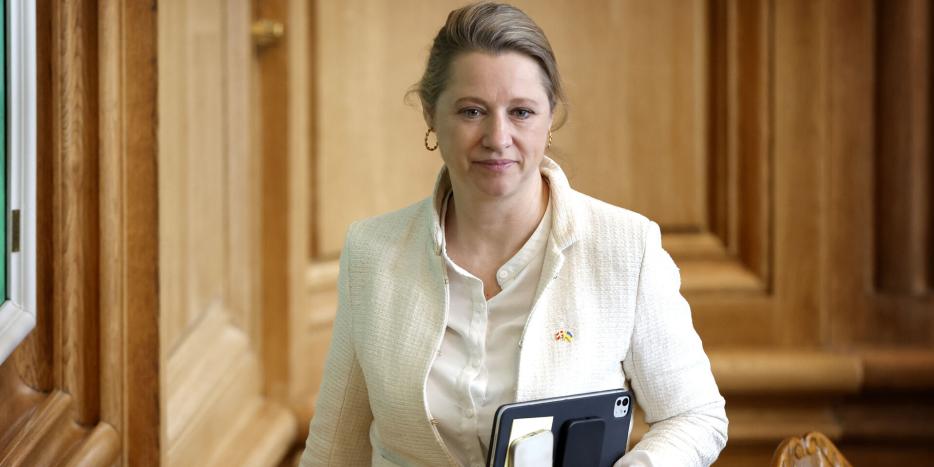After a year, the Ministry of Social Affairs has now rejected the claim for compensation totaling one million kroner to four Greenlandic adoptees.
The Danish state rejects the claim for compensation that four Greenlandic adoptees are demanding for human rights violations.
This is shown by a response from the Ministry of Social Affairs, according to Pramming Advokater, which represents the group. The rejection has now arrived a little over a year after the claim was sent on Greenland’s National Day on June 21st last year.
The four adoptees are each demanding 250,000 kroner – a total of one million kroner – from the Danish state for violating their human rights when they were removed from their biological families during the period from the 1950s to the 1970s.
According to legal assistant, Viktor Ingemann Herskind, from Pramming Advokater, who represents the group of adoptees, the rejection by the Ministry of Social Affairs is due to the fact that the cases are time-barred.
Adoptions in Greenland until 1979
Traditionally, adoptions in Greenland have taken place within the family, following the tradition of ‘gift children’ or foster children. The form is formally called ‘open adoption’, as the child and the biological parents know and often have a relationship with each other. In 1923, the Danish Adoption Act was put into effect for Greenland. The law is based on ‘closed adoptions’, where all ties and rights between the biological parents and the child are broken. In 1976, a new Danish Adoption Act was put into effect for Greenland. It tightened the rules for out-of-home adoption and reduced the number of ‘closed adoptions’ in Greenland to a minimum.
Since the late 1970s, Greenland has had virtually no adoptions out of the country.
The Greenlandic Adoption Act was last amended in 2010 and currently includes three different forms of adoption: family adoption, stepchild adoption and stranger adoption. The first two forms of adoption are the most common.Sources: “Kinship and gender in Greenlandic urban communities – feelings of connectedness”, 2010 and the High Commissioner in Greenland and information from the Adoptions Council.
Sources: “Kinship and gender in Greenlandic urban communities – feelings of connectedness”, 2010 and the Royal Commissioner in Greenland and information from the Adoptions Council.
At the same time, the ministry also does not believe that there is sufficient documentation that the then applicable rules for adoption were not complied with in the four cases.
– We are extremely disappointed that the ministry has chosen to reject our clients, especially with such a brief justification. There is ample documentation that a violation of human rights has occurred, says Viktor Ingemann Herskind.
It has not been possible for KNR to see all four rejection responses from the Ministry of Social Affairs, as they are personal cases.
The claim for compensation is based on a violation of Article 8 of the European Convention on Human Rights, which concerns the right to private and family life.
Now the case will instead go to court, says Viktor Ingemann Herskind. A process that could take several years.
– It will be both time-consuming for our clients, and it will also be very intrusive, he says.
No intervention
If you ask Margrete Johansen, who is one of the adoptees behind the claim, she is ready to take the case to court.
She is angry about the rejection and that the case has taken a year so far.
– It is a total rejection of me as a human being and a degradation of the life I have lived, and I am naturally angry, says Margrete Johansen, who is now 74 years old.
The ministry’s rejection of Margrete Johansen is due, among other things, to the fact that the ministry does not believe that, based on the current information, there is a basis to conclude that the adoption was carried out without the consent of her biological mother. This is shown in the letter that KNR has seen.
Margrete Johansen was adopted in 1951 by a Danish couple who worked in Greenland. She subsequently lost both her Greenlandic culture and language when the couple moved to Denmark. An upbringing that, according to her, was very dysfunctional, as KNR has previously described.
As an adult, she found her original family and at the same time received a completely different story about the adoption than the one she had known until now. According to her biological mother, the mother had been forced to sign the adoption papers. At the same time, the papers were in Danish, which she, as a Greenlandic speaker, could not understand.
– I would like to receive recognition for the fact that no one intervened and stopped the abuse that I was exposed to in my childhood and youth, says Margrete Johansen.
For a court
But the fact that the Danish state is now rejecting the claim for compensation does not come as a big shock to Pramming Advokater.
The government has previously rejected claims for compensation from both the group of women from the IUD case and the group of legally fatherless people, which Pramming Advokater also represents.
The two cases will also go to court.
– The government has already indicated that they are working on a way where these cases must go through a court in order for it to take them seriously, says Viktor Ingemann Herskind.
KNR has attempted to obtain an interview with the Danish Minister of Social Affairs, Sophie Hæstorp Andersen, about the case, but it has not been possible.
Instead, the Ministry of Social Affairs and Housing writes in a written response to KNR:
– The Ministry of Social Affairs and Housing, with advice from the Attorney General, has assessed the compensation claims from a legal standpoint, including the rules for adoptions in force at the time. On that basis alone, the claims are rejected. If the claims are brought before the courts, it will be up to the courts to assess the claims.
